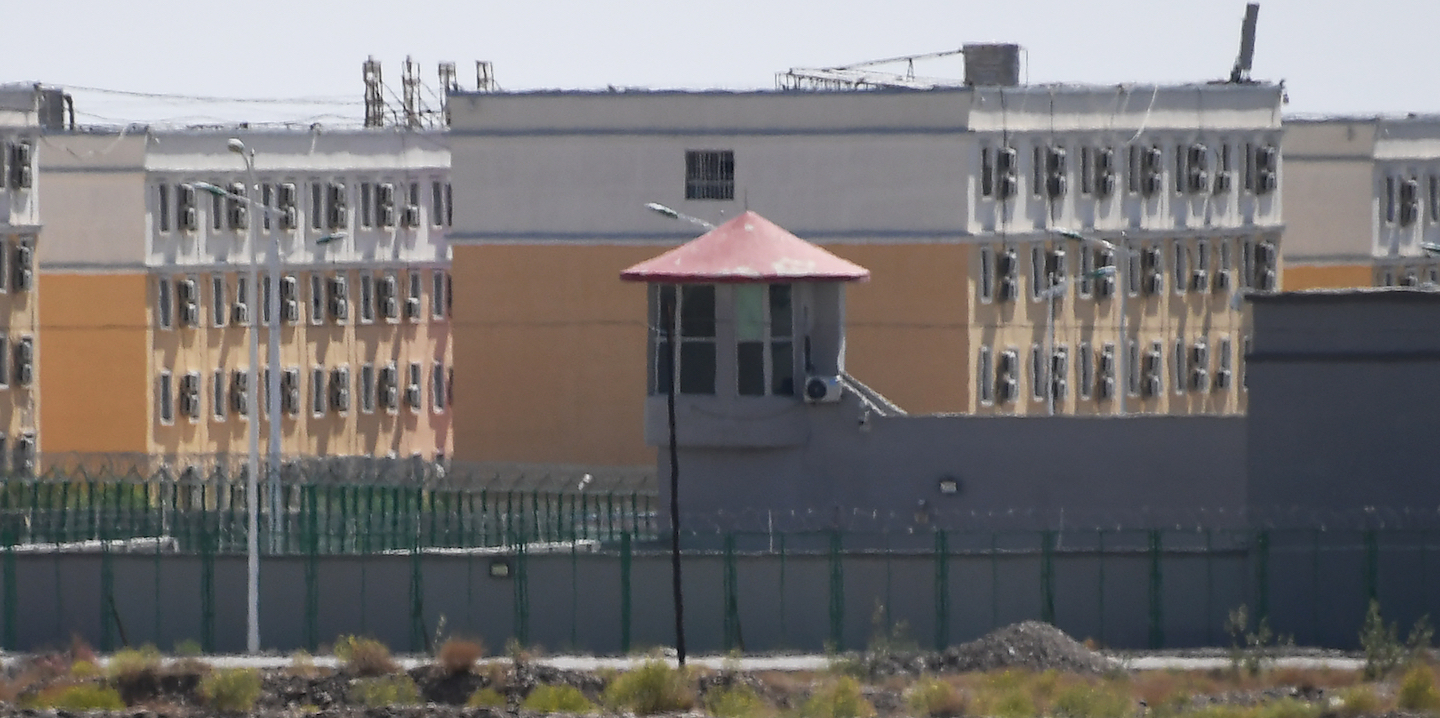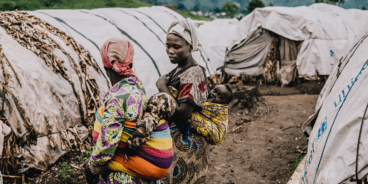

Atrocity Prevention and the Human Rights of Detainees During the COVID-19 Pandemic
Testimony by Dr. Simon Adams, Executive Director of the Global Centre for the Responsibility to Protect, for a meeting of the Human Rights Subcommittee of the European Parliament, 11 May 2020
Thank you for inviting me to speak. Let me begin by saying that on 25 March the UN Subcommittee on the Prevention of Torture called for the release of those arbitrarily detained, or charged with offences that should not be criminalized, to reduce prison overcrowding in response to COVID-19. And on 29 April the UN Special Rapporteur on the promotion of truth, justice, reparation and guarantees of non-recurrence, also called for urgent measures to protect against COVID-19 in overcrowded jails, while saying that these should not lead to impunity for persons convicted of serious violations of human rights, crimes against humanity, genocide, or war crimes.
The Global Centre for the Responsibility to Protect supports these calls and in this context, I would like to make a few additional points.
Firstly, although COVID-19 is a global threat, the suffering caused by the pandemic will not be borne equally. Around the world there are millions of people in conditions that leave them dangerously exposed to the virus. I would particularly like to emphasize the plight of detainees and prisoners in countries facing armed conflict, and/or where the threat of war crimes or crimes against humanity is very high.
Prisons and detention facilities are especially conducive to the rapid spread of infectious diseases, with little possibility to self-quarantine or practice social distancing. With regard to COVID-19, state authorities and non-state armed groups that arbitrarily detain people, or who incarcerate people for their political beliefs, may, effectively, be sentencing such people to death.
A couple of examples spring to mind.
In Burundi arbitrary detention of alleged government opponents has been a defining feature of the crisis in that country since 2015, and an election is scheduled for later this month. The main target for arbitrary detention has been members of the main opposition party, and sometimes their relatives. In January 2020 journalists were also sentenced for “undermining state security.” And so, in Burundi we have thousands of people who should not be in prison in the first place, facing the onslaught of a potentially deadly virus. Those detained arbitrarily, or with charges which should not be criminalized (e.g.: journalists), should be released immediately.
In addition, secret torture and detention facilities have been documented in Burundi. Given that the authorities refuse to even admit to the existence of these sites, it’s hard to imagine that they will be providing adequate protection from COVID-19 there.
Similarly, in Cameroon, there are 78 overcrowded prisons, with 30,000 prisoners in facilities constructed for a maximum of 9,000 inmates. President Biya has released hundreds of political prisoners, but overcrowding still threatens the lives of thousands more political prisoners and detainees. Many prisoners are in jail because of their alleged involvement with separatist groups in the armed conflict in the Anglophone regions of the country.
Meanwhile, in Central African Republic, since 2012 populations have endured the collapse of the state, the predations of multiple armed groups, and identity-based violence. Various armed groups are guilty of arbitrary detention and deprivation of liberty. The government has agreed to a limited prison release, but information is almost completely lacking on prison conditions in areas controlled by predatory armed groups, who control almost 75% of the country.
In Libya, the situation in the country’s overcrowded detention centers for migrants and asylum seekers was grave before the additional threat of the COVID-19 pandemic. According to the International Organization for Migration, there are over 654,000 migrants in Libya where they endure serious violations of human rights, including sexual violence, arbitrary detention, and enslavement. There are fears that detained migrants may now be dependent upon human traffickers and other international criminals to protect them from COVID-19.
Meanwhile in Nigeria, since 2013 authorities have detained thousands of children in military prisons in the north of the country on suspicion of being associated with the armed extremist group, Boko Haram. The vast majority of these children are never charged with a crime. They are held for months and cut off from their families. There can be little justification for keeping these children detained during the COVID-19 pandemic.
Since the outset of the Syrian conflict in 2011, anyone perceived as opposing the government has been at risk of being arbitrarily detained or forcibly disappeared. Cruel and inhumane conditions in prisons and detention centers across the country have been regularly documented by the UN Commission of Inquiry (including severe overcrowding and a lack of medical treatment). According to the Commission of Inquiry, an estimated 100,000 people are currently detained, abducted or missing in Syria. The government’s treatment of detainees, who are often subjected to torture, amounts to crimes against humanity. The UN Special Envoy for Syria, Geir Pedersen, has told the UN Security Council that the release of detainees is crucial in light of the pandemic. But no prisoners of conscience have been released in Syria.
Similarly, in Venezuela, arbitrary arrest and detention is a defining feature of state-led violence, with a focus on political opponents, human rights activists, and military defectors. We believe the scale and systematic nature of state violence in Venezuela (including torture) also constitutes potential crimes against humanity. Moreover, shocking conditions in prisons and detention facilities are exacerbated by the economic and humanitarian crisis in Venezuela. There has already been one deadly prison riot in Portuguesa State as a result of overcrowding and COVID-19 fears.
Finally, in China, more than one million ethnic Uighurs and other Turkic Muslims are currently being detained in so-called “vocational training facilities,” or “de-extremification facilities”, which essentially amount to concentration camps. There are grave fears for this population who are cut off from the world, and we have no idea of what measures (if any) have been put in place to protect them from COVID-19.
In conclusion, those in prisons and other detention facilities who have been arbitrarily detained, or locked up for their political beliefs, or for their ethnicity or religion, may face a potential COVID-19 death sentence – not necessarily for anything they have done, but for who they are.
The Global Centre for the Responsibility to Protect therefore urges this sub-committee of the European Parliament to use its considerable influence to respond to the issue of detainees and COVID-19 by emphasizing the necessity of release programs wherever possible. Some governments and non-state armed groups are trying to weaponize this global pandemic. But now is the time to defend universal human rights, and to uphold our responsibility to protect vulnerable populations from atrocity crimes. An incalculable number of lives of prisoners, asylum seekers, and detainees may hang in the balance.
Thank you for your time and for the opportunity to address you.

